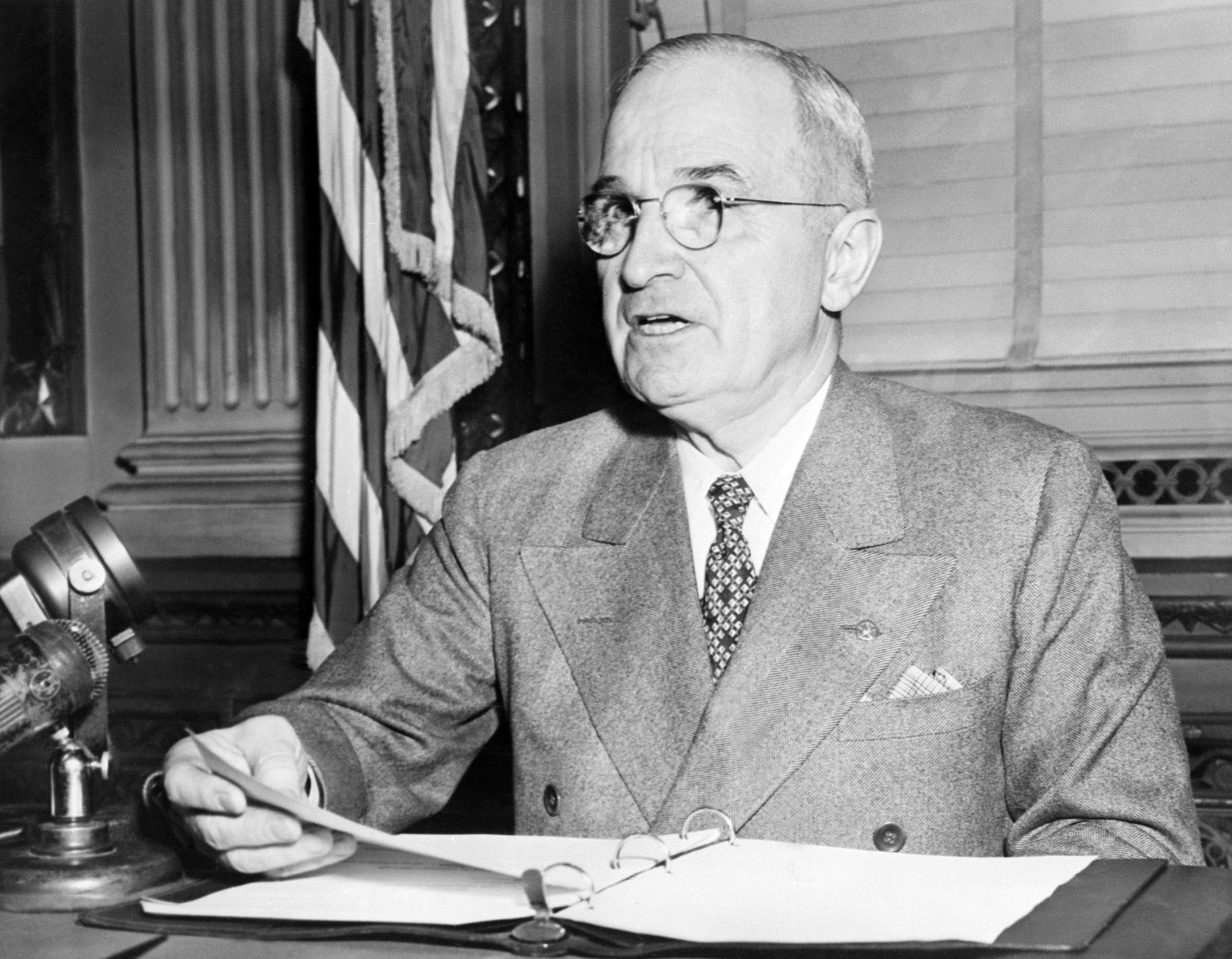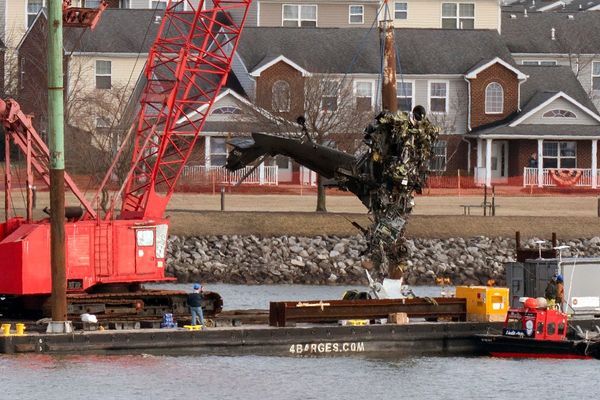Who knew Harry Truman was so “woke?”
According to President Donald Trump, the 33rd man to be sworn into the office he now holds — the same person who ordered the only use of atomic weapons against civilians during wartime — signed legislation creating the Department of Defense in 1947 not out of a desire to improve the country’s military readiness but out of what Trump posited was “political correctness.”
Speaking in the Oval Office alongside Secretary of Defense Pete Hegseth and Joint Chiefs Chairman General Dan Caine, Trump invoked the country’s history of victories in two world wars before the realities of the post Second World War world necessitated a change in posture — and a change in name — for what was then known as the War Department.
“So we won the first World War. We won the Second World War. We won everything before that and in between. And then we decided to go woke and we changed the name to Department of Defense. So we're going Department of War,” he said.
Trump has been flirting with the anachronistic name for the world’s most powerful military establishment since earlier this summer, when he began referring to Hegseth, the ex-Fox News host and onetime Army Major, as the “War Secretary.”
This no doubt delighted Hegseth, who has spent much of his time in public life advocating for a more bellicose expression of America’s military tradition, including pushing for the exoneration of convicted war criminals and complaining about the integration of women and LGBT+ people into the U.S. armed services.
Now, he’ll be able to use the outdated title last held by Kenneth C. Royall when it was abolished in September 1947.
But Hegseth’s responsibilities still far outstrip the former War Department, which up to the day Truman signed the National Security Act of 1947 was only charged with oversight of the U.S. Army and the then-affiliated U.S. Army Air Corps.
That landmark bill separated out the Air Force and placed it, along with the Army and Navy (and with it the Marine Corps) under the supervision of a single cabinet official.
Was it because Truman was “woke?”
Not so much.

The creation of the Defense Department was part of a recognition by Truman and the Congress of the day that the post-war world, a nuclear world, required deterrence to be the foundation for relations between adversarial superpowers.
In an era when atomic weapons, and later even more power thermonuclear weapons, were an ever-present threat, the architecture built starting in 1947 was meant to secure the United States and the western democratic alliance by keeping smaller conflicts from spiraling out of control.
It was also part of a series of other actions taken in the wake of that devastating world war to prevent another one from ever occurring, including the creation of the United Nations, NATO, and other international multilateral organizations.
Since then, the U.S. has tightly integrated itself with her allies and created multi-layered defenses in domains that Truman could only have dreamed of in 1947, including in cyberspace and outer space.
Trump’s worldview and policy positions, by contrast, are built on rejecting almost all of that in favor of returning to a more bellicose age when great powers fought out their differences in a pre-nuclear world.
Lawrence Wilkerson, a retired U.S. Army Colonel who was once chief of staff to Secretary of State (and former Joint Chiefs chairman) Colin Powell, told The Independent that Trump’s order “could be a very bad step backward” because it “puts a rubber stamp on what Trump is essentially perceived by the globe to be doing, basing the American empire principally and increasingly exclusively on military power.”
“That is not something we should be reinforcing with the rest of the world,” he said, pointing out that the U.S. is “falling behind” in the race to shore up alliances in an ever-changing modern world that could be soon dominating by a rising China and a resurgent Russia.
Wilkerson, a decorated Vietnam War veteran who emerged as a critic of the U.S. invasion of Iraq after he prepared Powell to make the case for it before the U.N. Security Council in 2003, expressed unease at the worldview expressed by Trump — and especially Hegseth — which essentially holds that the only power that matters is hard power and the soft power with which the U.S. inspired allies and attracted friends over the last 80 years is for wimps, sissies, and wokesters.
Hegseth seemed to echo this very concern when he spoke after Trump in the Oval Office, when he boasted that the move was about “restoring the warrior ethos, restoring victory and clarity as an end state, restoring intentionality to the use of force.”
“We're going to go on offense, not just on defense, maximum lethality, not tepid legality, violent effect, not politically correct,” said Hegseth, who vowed to “raise up warriors, not just defenders.”
The clear implication was that “defense” as a concept signals weakness, and “war” implies strength.
Hegseth, an Iraq and Afghanistan veteran, didn’t appear to remember the motto of the branch in which he once served, is “This We’ll Defend.”
But the former television presenter, the least-experienced Secretary of Defense since the position was established, may well get his wish for more uses of force.
Because Trump’s dismantling of other post-war creations including the U.S. Agency for International Development, his cutting off the Voice of America and stripping billions of dollars from the State Department’s foreign aid budget, all make it more likely that the Pentagon — whatever you call it — will find itself in a war sooner rather than later.
There’s no more denying it – Trump risks a recession on his watch
Trump heading back to US Open for first time since he was booed there in 2015
Trump renames Pentagon to ‘Department of War’ as Hegseth promises ‘maximum lethality’
Trump’s name change to Department of War could cost taxpayers over $1B
South Korea condemns ‘unfair infringement’ after ICE raid on Hyundai plant in Georgia







